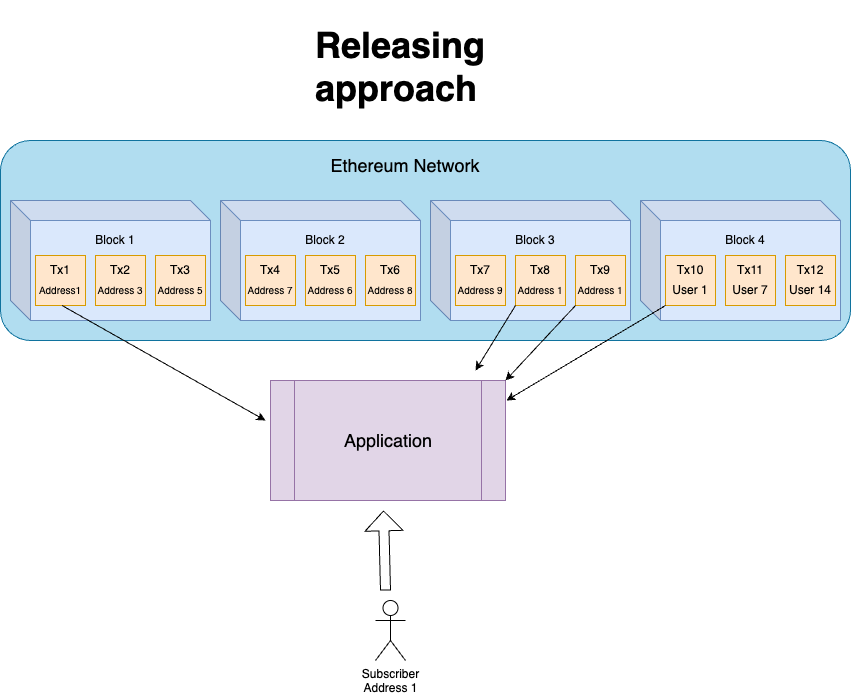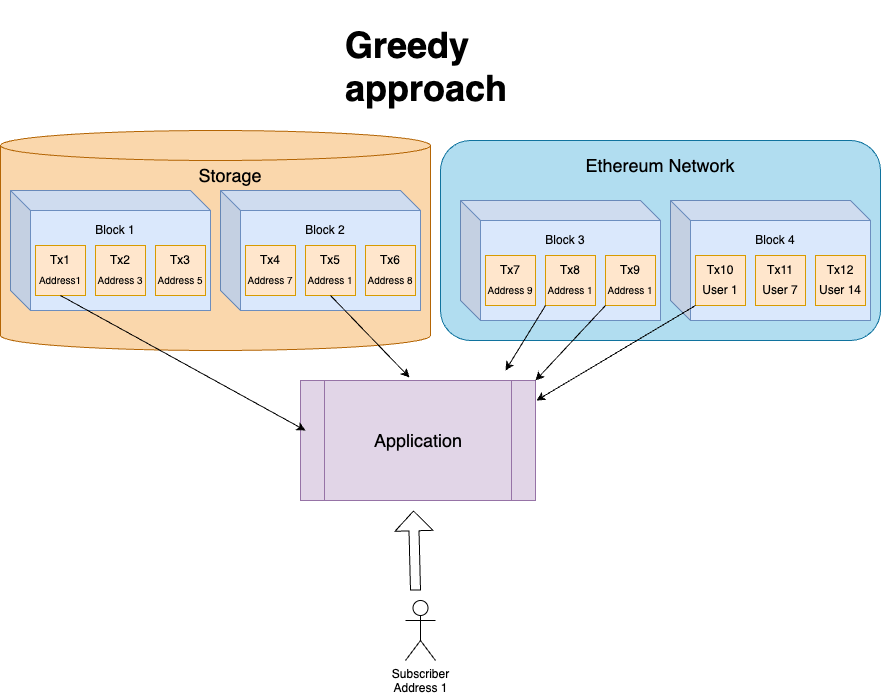Subscriber providing interface for listening upcoming transactions in Ethereum Network
Current implementation provide 2 usage interfaces: CLI and HTTP Api
To install CLI and use it just install it through go install
go install github.com/bluntenpassant/ethereum_subscriber/cmd/ethereum_subscriber-cliafter you can open user-cli with command
ethereum_subscriber-cliTo install API and use it just install it through go install too
go install github.com/bluntenpassant/ethereum_subscriber/cmd/ethereum_subscriber-apiafter you can launch HTTP api server with command
ethereum_subscriber-apior you can use it as docker image. Dockerfile located in docker/Dockerfile commands for running Dockerfile presented below
docker build -o ethereum_subscriber ./docker
docker run ethereum_subscriber -p 8080:8080NOTE: If you need to change app configuration that might be very helpful for launch different scenarios, you need to download source code and change configuration directly in app. In further we will provide interface for changing configs directly through CLI, but now... life is life 3>
Ethereum subscriber at the current moment supports 3 methods for interaction
| Command | Description |
|---|---|
GetCurrentBlock |
Returns last parsed block between all transactions. Current block is not attached to last parsed transaction and indicates only block number that was handled by internal parser |
Subscribe |
Subscribe address for a listening new transactions |
GetTransactions |
Returns all history of transactions for a given address since subscribe until memory storage is cleaned. |
Now Ethereum Subscriber supports two different approaches in transactions handling.
You can change current approach with parameter General->Approach
Subscriber uses for a getting a full list of inbound or outbounds transactions by user since subscription. Due to simple transactions in Ethereum Network are not indexed, we cannot get it through simple JSONRPC methods directly, in 1 request. This method uses heuristic approach without having to process the entire chain.
Subscriber in releasing approach mode everytime handling all transactions since subscription time.
After handling a bunch of blocks and transactions handler releases all data in runtime and waiting for
another task
This approach will be suitable in case when you're launching program in a short-term.
Approach does not consume many resources and might work fast enough, cause handler does not need to
save data in distributed storage everytime, it saves only minimum data about subscription block and count of
transactions, you can use memory storage for this approach. In config this approach is chosen
by default, because this approach require few resources and does not require distributed side storages. But if you are planning to keep program long keepalive time
Greedy approach will be more convenient and effective for you.
In average Ethereum Network has 25 TPS(Transaction Per Second) and has 110 bytes per transaction (https://ethereum.stackexchange.com/questions/30175/what-is-the-size-bytes-of-a-simple-ethereum-transaction-versus-a-bitcoin-trans)
So, our load is 3KB per second. In a computer with 4GB RAM we will die in 1kk second (4GB/4KB) = 11.5 days.
You should consider, that calculated load presented for 1 subscriber with linear traffic, for more subscribers
and async requests you will die much faster
In greedy approach handler goes a little different way and trying
to save as much as possible transaction in storage to prevent case
when we request data, that we already handled. Instead of releasing data
after every handling, handler saves data into storage and actively using
storage for caching handled transactions. You can configure transaction lifetime
with parameter Storage->Redis->data_keep_alive_duration
We have two different processing approaches in handling data
- Synchronous: using for consequentially handling data one by one. This approach guarantees order of every transaction (last -> first)
- Asynchronous: using random handling data. Order of this processing approach is random, and you might need extra sorting operations for handling data correctly
You can choose more convenient parameter for you with parameter General->Processing


